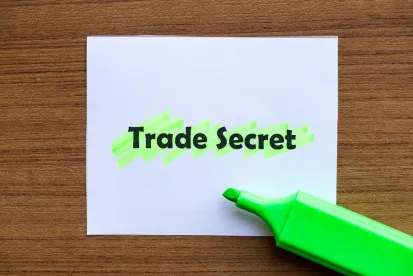As a startup or early stage company, you have many things to focus on – growing your sales, revenue, cash flow, and creating meaningful profits. Protecting and enforcing your intellectual property (IP) is most likely not your primary focus or perhaps not even on your radar yet. Well, it should be because IP is among a startup’s most valuable business assets!
Consumers have so many choices these days among all the emerging technologies and businesses with the points of differentiation becoming more finite or subtle. The ever-growing competitive challenges make protecting and enforcing IP more important than ever and are a primary reason it needs to be high on a startup’s list of priorities. To enforce IP, you need to know what it is and how to protect it. These questions were covered previously in Why Should Startups Care About Intellectual Property? and Intellectual Property 101: What It Is and Why I Should Protect It. This article focuses on the enforcement of IP.
What is Intellectual Property?
There are four types of intellectual property:
- A trademark is a name, logo, symbol, slogan, or tagline – or in some limited cases, even a shape, color, or sound – that is used to identify and distinguish goods or services of one person or company from those of another.
- A patent is a right granted by the federal government to the patent owner that permits the owner to exclude others from making, using, or selling an invention for a limited time period (for example, up to 20 years).
- A copyright grants the owner the exclusive right to publish, reproduce, print, perform, display, license, film or record their literary, artistic, or musical content, and prepare derivative works based on the copyrighted work.
- A trade secret is highly confidential proprietary information, such as a device, method, technique, process, formula, or program, that has undergone reasonable efforts to maintain its secrecy because it provides significant economic value in not being known or readily discoverable by others.
Enforcing Your Intellectual Property
If you have properly protected your intellectual property and a person or company is using it without your permission or authorization, you can enforce it. There are different ways to enforce your IP, either before litigation or through a formal lawsuit.
A cease and desist demand letter is typically the first step. The letter asks the "infringer" to stop the unauthorized or illegal use of your IP ("cease"), and not to use it again in the future ("desist"). The cease and desist letter should include the identity and rights of the IP owner, as well as a specific deadline that the infringer must stop using the IP before you may sue them.
Some situations of apparent infringement are either minor or perhaps not even infringement at all, and therefore, may not be worthy of a cease and desist letter or litigation.
Therefore, an important initial step before firing off a cease and desist letter, or taking some other type of enforcement action, is to conduct some "due diligence" – a legal term meaning, do some research on the infringer. Among the many questions to ask and considerations to think about before taking action are: who is the infringer, is it a person or a company, how big or small of a company is it, where are they located, what's their primary business, do they seem to have a history of infringing other owners' rights, have they infringed on your IP rights in the past, and how much does the infringement harm your company now and possibly in the future?
The typical goal of a cease and desist letter is to end the infringement promptly and avoid costly litigation. Therefore, taking the right tone and approach in the letter is key to successfully addressing and resolving the matter. Sometimes a very strongly worded, aggressive "demand" letter is needed to get the infringer's attention immediately, and other times it's better to be cordial, calm, and "request" prompt cooperation. If the cease and desist letter is unsuccessful in getting the result you're seeking within your desired time period, you'll likely have to file a civil lawsuit.
If you've had issues with the infringer in the past, or the particular infringement poses a significant, immediate threat to your business, then you may find yourself pursuing a lawsuit right away, perhaps even seeking an "injunction." An injunction, although somewhat difficult to obtain, is a court order requiring the infringer to immediately stop their unauthorized conduct because your business will otherwise be irreparably, significantly, and immediately damaged.
Two other ways to enforce your IP rights, especially if the infringement is more serious and might not only damage your company but also harm the public, are to pursue a raid and seizure counterfeit civil action or to report the matter to state or federal authorities for possible criminal action (for example, involving state or federal prosecutors, U.S. Customs, IRS, or the FBI).
You Can Lose Your IP Rights if Not Enforced
If you don't take adequate or sufficient, reasonable means to protect and enforce your IP, then you run the risk of losing your IP rights. What is sufficient and reasonable action is not always clear; it depends on the situation. But, suffice it to say, if you know someone is using your IP without your authorization, you should promptly look into it to determine what, if anything, should and needs to be done so that you don't lose one of your most important business assets – your valuable intellectual property.




 />i
/>i

